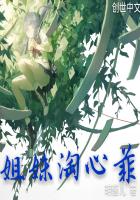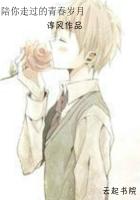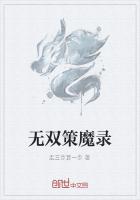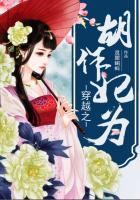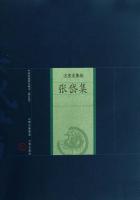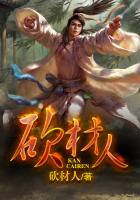Jose was the first one that saw the sheriff riding into the village, and the band of armed men behind him, and Jose knew what it meant. He had often talked it over with me and with my father, and now he saw that it had come; and he went crazy in one minute, and fell on the ground all froth at his mouth. He had had a fit like that once before; and the doctor said if he had another, he would die. But he did not. They picked him up, and presently he was better; and Mr. Rothsaker said nobody worked so well in the moving the first day as Jose did. Most of the men would not lift a hand. They sat on the ground with the women, and covered up their faces, and would not see. But Jose worked; and, Senorita, one of the first things he did, was to run with my father's violin to the store, to Mrs. Hartsel, and ask her to hide it for us; Jose knew it was worth money. But before noon the second day he had another fit, and died in it,-- died right in his own door, carrying out some of the things; and after Carmena -- that's his wife's name -- saw he was dead, she never spoke, but sat rocking back and forth on the ground, with the baby in her arms. She went over to Pachanga at the same time I did with my father. It was a long procession of us."
"Where is Pachanga?" asked Ramona.
"About three miles from Temecula, a little sort of canon. I told the people they'd better move over there; the land did not belong to anybody, and perhaps they could make a living there. There isn't any water; that's the worst of it."
"No water!" cried Ramona.
"No running water. There is one little spring, and they dug a well by it as soon as they got there; so there was water to drink, but that is all. I saw Carmena could hardly keep up, and I carried the baby for her on one arm, while I led my father with the other hand; but the baby cried, so she took it back. I thought then it wouldn't live the day out; but it did live till the morning of the day my father died. Just a few hours before he died, Carmena came along with the baby rolled up in her shawl, and sat down by me on the ground, and did not speak. When I said, 'How is the little one?' she opened her shawl and showed it to me, dead. 'Good, Carmena!' said I. 'It is good! My father is dying too. We will bury them together.' So she sat by me all that morning, and at night she helped me dig the graves. I wanted to put the baby on my father's breast; but she said, no, it must have a little grave. So she dug it herself; and we put them in; and she never spoke, except that once. She was sitting there by the grave when I came away. I made a cross of two little trees with the boughs chopped off, and set it up by the graves. So that is the way our new graveyard was begun,-- my father and the little baby; it is the very young and the very old that have the blessed fortune to die. I cannot die, it seems!"
"Where did they bury Jose?" gasped Ramona.
"In Temecula," said Alessandro. "Mr. Rothsaker made two of his men dig a grave in our old graveyard for Jose. But I think Carmena will go at night and bring his body away. I would! But, my Senorita, it is very dark, I can hardly see your beloved eyes. I think you must not stay longer. Can I go as far as the brook with you, safely, without being seen? The saints bless you, beloved, for coming. I could not have lived, I think, without one more sight of your face;" and, springing to his feet, Alessandro stood waiting for Ramona to move. She remained still. She was in a sore strait. Her heart held but one impulse, one desire,-- to go with Alessandro; nothing was apparently farther from his thoughts than this. Could she offer to go? Should she risk laying a burden on him greater than he could bear? If he were indeed a beggar, as he said, would his life be hindered or helped by her? She felt herself strong and able. Work had no terrors for her; privations she knew nothing of, but she felt no fear of them.
"Alessandro!" she said, in a tone which startled him.
"My Senorita!" he said tenderly.
"You have never once called me Ramona."
"I cannot, Senorita!" he replied.
"Why not?"
"I do not know. I sometimes think 'Ramona,'" he added faintly;
"but not often. If I think of you by any other name than as my Senorita, it is usually by a name you never heard."
"What is it?" exclaimed Ramona, wonderingly.
"An Indian word, my dearest one, the name of the bird you are like,-- the wood-dove. In the Luiseno tongue that is Majel; that was what I thought my people would have called you, if you had come to dwell among us. It is a beautiful name, Senorita, and is like you."
Alessandro was still standing. Ramona rose; coming close to him, she laid both her hands on his breast, and her head on her hands, and said: "Alessandro, I have something to tell you. I am an Indian.
I belong to your people."
Alessandro's silence astonished her. "You are surprised," she said.
"I thought you would be glad."
"The gladness of it came to me long ago, my Senorita," he said. "I knew it!"
"How?" cried Ramona. "And you never told me, Alessandro!"
"How could I?" he replied. "I dared not. Juan Canito, it was told me."
"Juan Canito!" said Ramona, musingly. "How could he have known?" Then in a few rapid words she told Alessandro all that the Senora had told her. "Is that what Juan Can said?" she asked.
"All except the father's name," stammered Alessandro.
"Who did he say was my father?" she asked.
Alessandro was silent.
"It matters not," said Ramona. "He was wrong. The Senora, of course, knew. He was a friend of hers, and of the Senora Ortegna, to whom he gave me. But I think, Alessandro, I have more of my mother than of my father."
"Yes, you have, my Senorita," replied Alessandro, tenderly. "After I knew it, I then saw what it was in your face had always seemed to me like the faces of my own people,"
"Are you not glad, Alessandro?"
"Yes, my Senorita."
What more should Ramona say? Suddenly her heart gave way; and without premeditation, without resolve, almost without consciousness of what she was doing, she flung herself on Alessandro's breast, and cried: "Oh, Alessandro, take me with you! take me with you! I would rather die than have you leave me again!"






